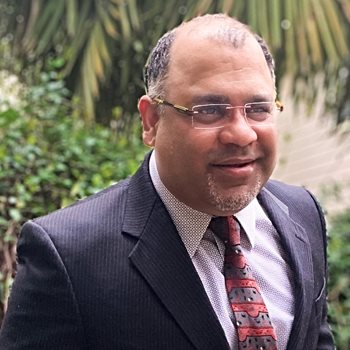11 May 2021
Change Is Good: How Lean Six Sigma Can Bring Out the Best In All of Us
By Stephanie Stevens
 Pavan Luk has been a fan of Lean Six Sigma (LSS) — a systematic method used to improve business performance by meticulously reducing waste — for more than 20 years, using LSS principles to review and improve his projects. In 2017, he made it official by earning his Lean Six Sigma Green Belt certification from UC San Diego Extension.
Pavan Luk has been a fan of Lean Six Sigma (LSS) — a systematic method used to improve business performance by meticulously reducing waste — for more than 20 years, using LSS principles to review and improve his projects. In 2017, he made it official by earning his Lean Six Sigma Green Belt certification from UC San Diego Extension.
"I simplify science for profits. I am a chemist and technologist — a chemical engineer with a management degree," he explains. "I'm looking for a job, but not just any job."
Luk said that after discovering Lean Six Sigma, he was convinced that more science-based organizations needed to embrace change management. Science is technical by nature, but there are still missed opportunities to improve testing and results.
What he found in UC San Diego Extension's Lean Six Sigma program was an unexpected and delightful surprise: community. Luk discovered a group of like-minded people who were there to learn how to solve problems that were often very similar in nature, regardless of the industry.
Inspired, Luk offered, "Let us rise to the challenge and demands of the day. We are in the midst of enormous change in the western industrial world. We need rapid change in the workforce and society."
Heading back to the office and introducing a program centered around change (and challenging the validity of people's pre-existing beliefs) can be a tough sell for some organizations. However, Luk said, the proof is in the numbers.
"I work in a 200-year-old industry," he said. "Lean Six Sigma enabled me to evaluate a backlog of ideas with unconventional wisdom and to use new metrics to drive effective decision making without bias."
To help face uncertainty and concern, Luk advises others to remind colleagues that life can change for the better if they come to process improvement with an open mind.
"I have proven that Lean Six Sigma methodology works by saving my organization $40,000 a day," he said. He managed this extraordinary feat by reviewing, adapting and realigning the existing business model and eliminating redundant, daily administrative tasks.
Continuous improvement to create better products and services with better quality, better profit margins and happier staff can be achieved. Why wouldn't employers want that?
"People may not like the word 'change' but like it or not, we have to reassess how we operate. It's time to experiment. With 45 million Americans working remotely, we need to try new things quickly, collect data, perform analytics, fail quickly, learn aggressively and adapt," Luk said.
Of his long-term goals, he said, "I started my journey with UC San Diego Extension. It's just a start, not an end; it is a journey. I hope to connect and inspire."
Learn more about UCSD Extension's Lean Six Sigma programs and read more stories from process improvement students on our website.